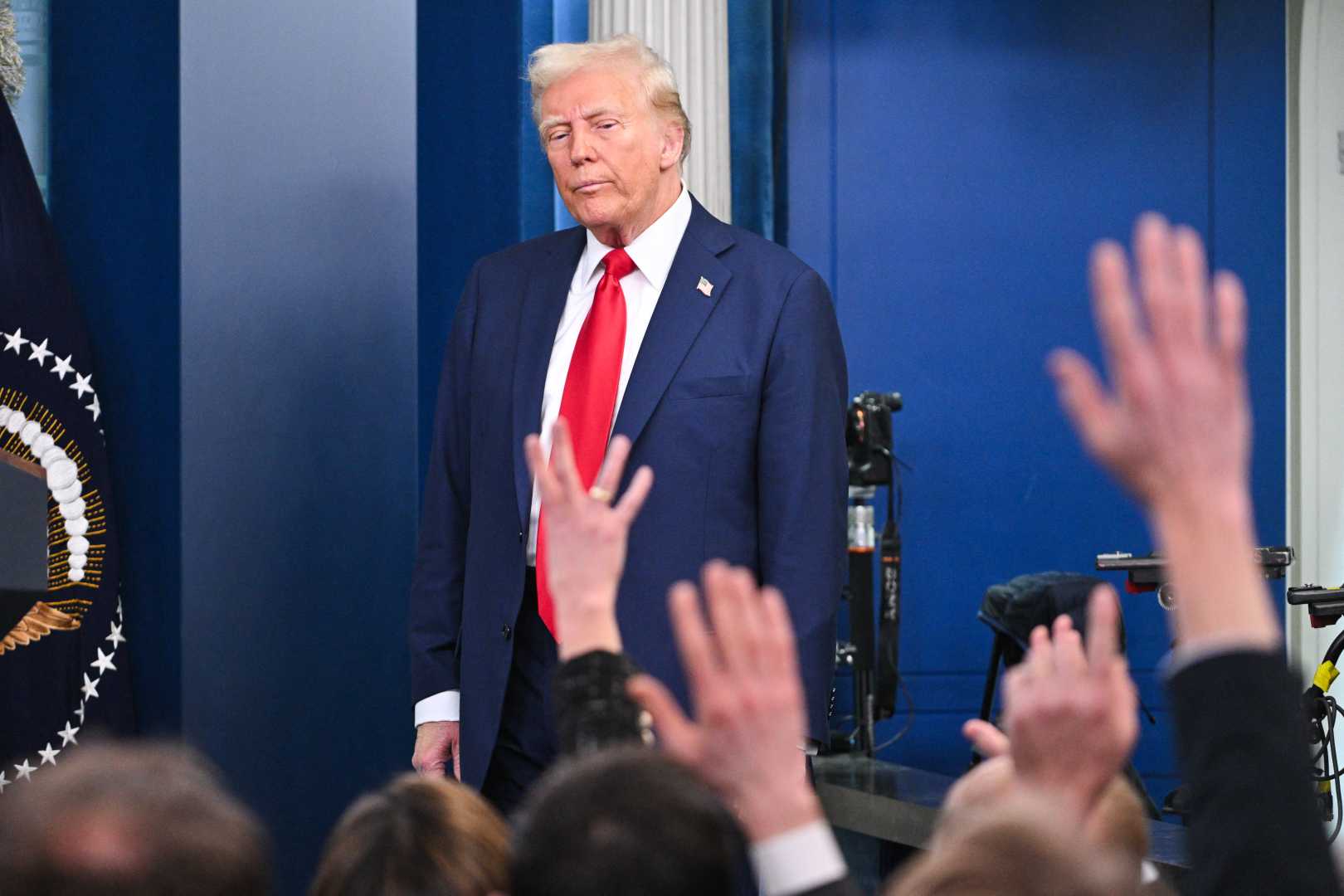Politics
Trump’s Funding Cuts Risk Global Democracy, Experts Warn

WASHINGTON, D.C. — In a controversial move, former President Donald Trump signed an executive order on March 14, 2025, that has raised alarms among democracy advocates. The order eliminates funding to the Voice of America (VOA) and Radio Free Europe/Radio Liberty (RFE/RL), which serve as vital sources of information for nearly half a billion people worldwide.
Experts have warned that this dramatic funding reduction jeopardizes not only U.S. global leadership but also the prospects for democracy itself. The decision arrives as the Agency for Global Media (USAGM) awaits a federal court ruling on its funding, with discussions among European partners, including the Czech Republic, to assume control of RFE/RL’s operations.
Kari Lake, Trump’s appointed head of USAGM, referred to the funding for these media outlets as “wasteful” while emphasizing her commitment to ensure taxpayer dollars are not misallocated. She stated in a video discussing the cuts, “We have to make sure your dollars are not misused.”
With a budget request for USAGM at $950 million for 2025—amounting to nearly 0.1 percent of U.S. defense spending—critics argue that the cuts are more politically motivated than budgetary necessities. Zurab Kodalashvili, a former director at RFE/RL, expressed concern that the cuts cater to Russian interests, diminishing America’s role in promoting democratic ideals.
“Moscow doesn’t like that there are these voices and alternative information,” Kodalashvili said. “Trump’s cuts may align with the Kremlin’s objectives to eliminate competing narratives.”
Experts highlight that the decision marks a significant departure from the United States’ historical commitment to support global democracy, and suggests a shift in U.S. foreign policy that prioritizes domestic concerns over international challenges. Vyacheslav Likhachov from the Center for Civil Liberties emphasized the implications this could have on global governance.
“The United States is declaring that it will no longer promote democracy globally,” Likhachov added. “This is a systematic attack on the entire pro-democratic movement.”
Unlike state-controlled outlets such as Russia’s RT or China’s CGTN, U.S. international broadcasters maintain strict editorial independence, which is crucial for credible reporting. The existing firewall laws prevent government control over content, preserving journalistic integrity. However, dismantling this infrastructure could mirror the conditions that led to the suppression of independent media in Russia.
Kodalashvili drew parallels, warning, “Closing these services won’t stop with international broadcasters. Trump may aim to silence all media within U.S. territory that criticizes him.”
Historical context underlines the significance of voices like RFE/RL, which survived intense Soviet scrutiny. Even after the USSR’s collapse, RFE/RL provided critical reporting that challenged state narratives, particularly during conflicts, including the First Chechen War and Ukraine‘s struggle for sovereignty.
With Russia’s escalating aggressiveness under Putin, the role of RFE/RL in providing information has become even more pivotal. The network, now labeled “enemy voices” in Russia, has been a key independent outlet combating state propaganda.
As of February 2024, Russian authorities criminalized cooperation with RFE/RL, effectively eliminating a hidden counter-narrative in a media landscape heavily dominated by Kremlin propaganda. The subsequent void following the shutdown of U.S. international broadcasters will likely be filled by state-controlled entities seeking to push their geopolitical agendas.
“Among the few free sources of information for those living under oppression are organizations like Radio Free Europe and Voice of America,” stated Czech Foreign Minister Jan Lipavský.
Experts warn these cuts represent a retreat from U.S. influence at a time when adversaries such as China and Russia ramp up global media campaigns. Since 2023, Beijing has invested heavily in foreign propaganda efforts, while Russia continues to enhance its state-run media networks.
Stephen Capus, CEO of RFE/RL, highlighted that the weakening of these media outlets would embolden authoritarian regimes worldwide. “Taking these voices offline hands our adversaries a win and makes them stronger while making America weaker,” he said.
As nations continue to grapple with information monopolies and state-controlled narratives, the absence of independent reporting from U.S. entities could further entrench autocracy across vulnerable regions,” Likhachov concluded.












